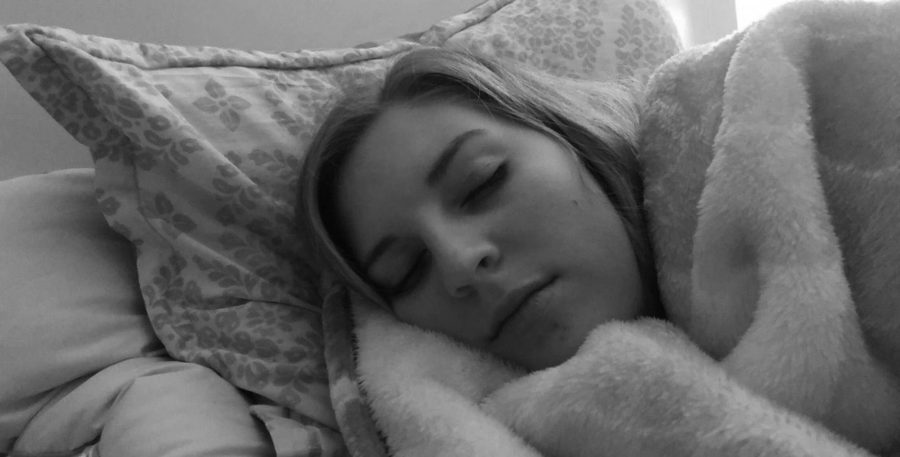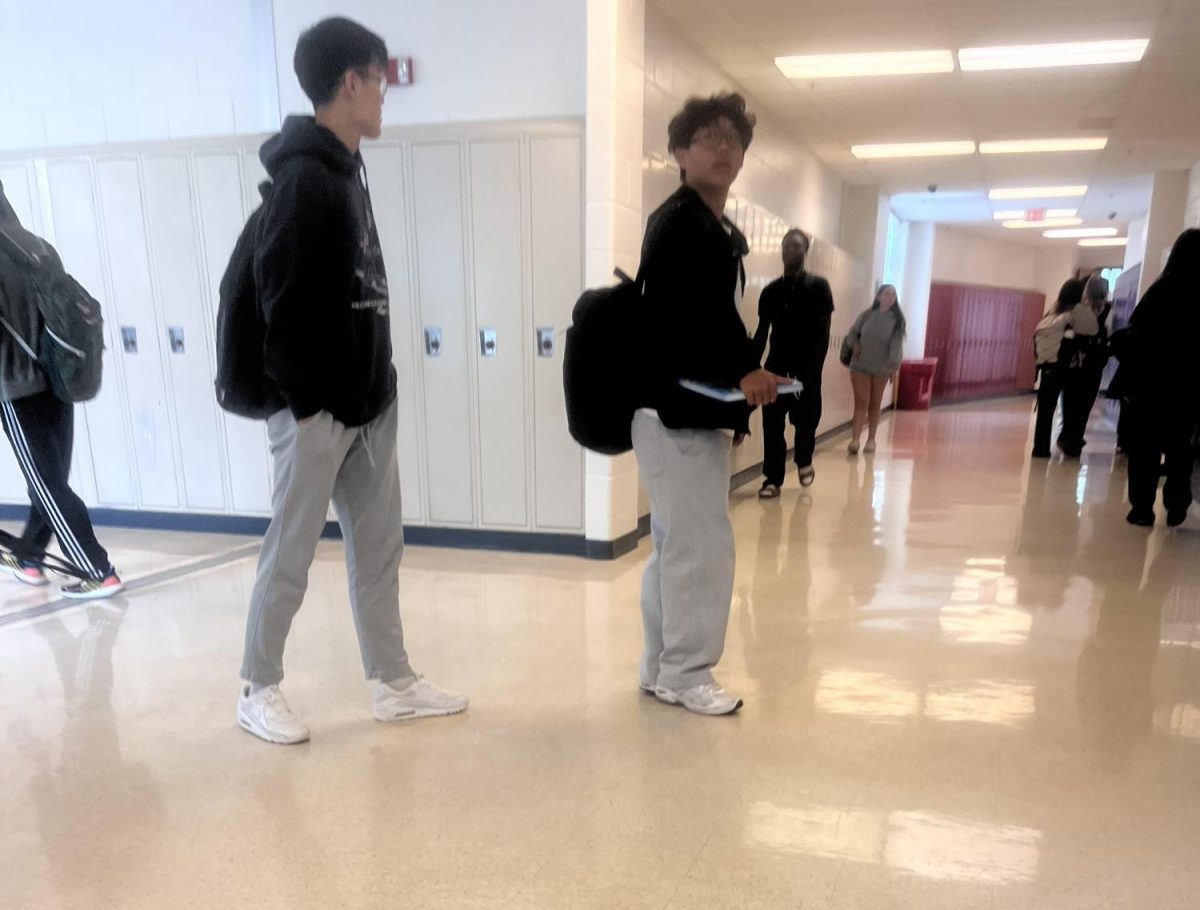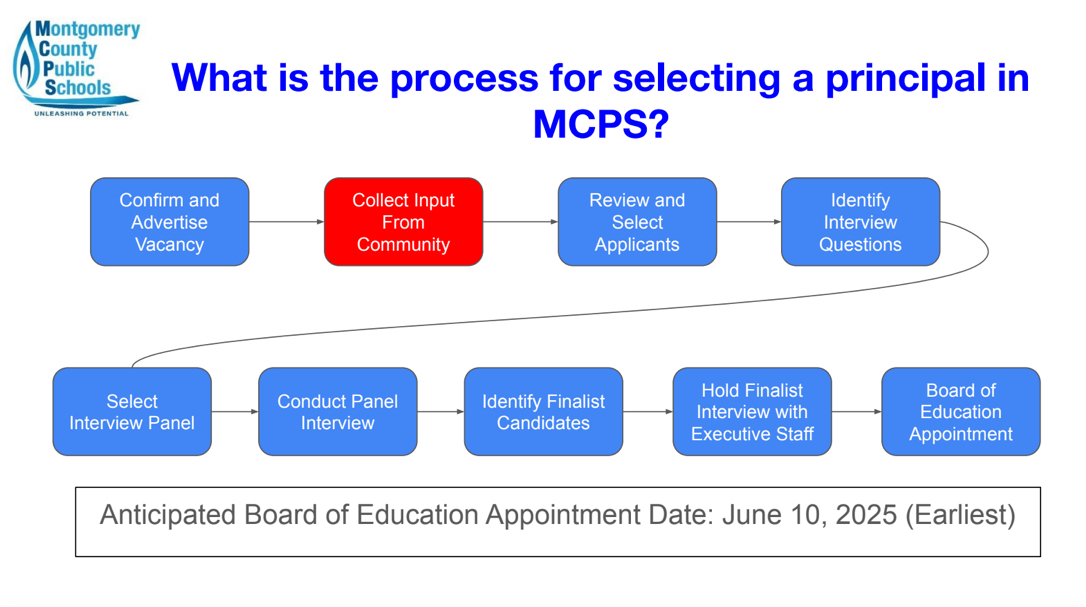Early in the morning, students find themselves shaking off slumber, barely awake in their dreaded first period class. Half-awake, groggy and having a hard time functioning aren’t unusual characteristics of a students’ morning. Despite parents’ and teachers’ tendencies to blame this sleepiness on late night scrolling and socialising, teens often can’t help that sleep that escapes them every night.
Physical effects
Getting a good night’s rest, nine and a half hours, is vital for a growing teens’ physical and mental well-being. However, this much needed sleep is often put on the back burner, where school takes the spot as the main priority. Not everyone realizes the importance of sleep and how detrimental a lack of sleep is. Without the proper amount of rest, teens are likely to experience more sickness as their immune systems suffers, harder times with problem solving and other cognitive thinking functions and worse skin and other health issues, based on a study published in Experimental Brain Research. On top of other implications of teens losing sleep, car accidents are a major result of this lack of sleep. Drivers aged 17-24 are 20 percent more likely to get into sleep-related car accidents.
Mental effects
Beyond the physical effects that sleep deprivation causes, it also damages a person’s mental performance. According to Harvard Medical School, “90 percent of children with [depression] experience some kind of sleep problem.”
Mental wellness and health are of utmost importance in keeping a student healthy. Sleep deprivation poses a threat to the wellness that this school so diligently tries to promote. Without getting the recommended amount of sleep, students fall more vulnerable to anxiety, depression, insomnia, increased stress and other crippling mental illnesses.
These statistics aren’t just numbers, they’re people; students are getting in car accidents, falling asleep in class or having to take naps the second they get home, desperately trying to make up for their lost sleep. “I find myself staying up past 12 a.m. trying to do work, and in the morning I’m like a zombie. It’s so hard to stay awake in first period, let alone pay attention,” junior Jenna Robinson said.
More consequences
Sleep deprivation hosts a plethora of unwanted results, like an inability to concentrate in class, slow physical reflexes, truancy and moodiness. Everyone has experienced these symptoms, even if it’s just a little grumpiness in the morning. The reason these symptoms are so relatable is because 87 percent of students are sleep deprived, based on a study done by the National Sleep Foundation.
It’s clear that there is a desperate need for sleep among students, and not getting those pivotal nine and a half hours can lead to several negative results, so why are teens so willing to give up their precious hours of sleep? Firstly, school monopolizes a teenager’s free time, leaving them with a lot of late nights. With school taking up seven hours of the day, then maybe an after-school job or sport taking up two more hours, three hours allocated to homework and studying, when is there time in the day for a kid to relax or sleep?
The sacrifices being made
Students often find they have to sacrifice social time with family or personal time to relax in order to make room for school work, which still cuts into their sleep. “I have to do so much work late at night, I barely get time to just chill,” Robinson said.
Not only does excessive work lead to this lack of sleep, but naturally teens are prone to staying up later. The natural sleep pattern of a teen is that of a late-to-bed, late-to-rise, cycle. Even on days where one has a light workload, it’s still natural for a teen to want to stay up later. During puberty a teens’ hormones “shift the teenager’s body clock forward by about one or two hours, making them sleepier one to two hours later,” according to Better Health.
This time shift is amplified as teens enter high school, where school starts earlier. This kind of sleep debt continues to increase, resulting in chronic sleep deprivation. “I feel like I can never seem to catch up on sleep,” junior Ari Glazier said.
We make it worse
Although the odds are stacked against teens getting their much-needed hours, some of the fault is on us, and the lure of screen-based devices. After a long day of work, it’s not unusual for a student to climb into bed and watch “just one” episode of their favorite show, watch Tik Toks, or Snapchat friends. But this exposure to blue light is just another reason people are having trouble falling asleep at night and waking up in the morning. “I am usually up way later than I intended to be because of watching Tik Toks,” sophomore Emily Levine said.
With all of the distractions in life, the one small thing we can all do to better ourselves and make our days a little easier is to keep ourselves well rested. The benefits that come from getting a good night’s sleep doesn’t just carry over to the next morning, but will serve you well for a lifetime.
Ways to fix the sleep deprivation and constant tiredness
First, put your phone away at least an hour before bed. Blue light exposure reduces the emission of natural melatonin in a person’s body, keeping them awake. A study done by Better Health found that those who stop using their phones an hour before bed get an extra 21 minutes each night, which sounds small, but can add up. This solution helps to combat the vicious cycle that is sleep deprivation.
Another way to prevent sleep deprivation throughout the week is by making it a priority to get to sleep early on Sunday night. This will get you into a routine and can encourage earlier sleep times throughout the rest of the week.
Added stress making things worse
Stress is a common problem keeping teenagers up at night. A lot of seniors are finding the weight of worrying about college steals some of their sleep. “I’m up late because I’m anxious about my school work and college decisions,” senior Madison Linn said.
These negative emotions you’re feeling are a call to action, and they’re telling your body you’re in danger, which is why you can’t fall asleep. This heightened adrenaline and increased heart rate leaves the restless tossing and turning in their beds. This is why it is so crucial to attempt to reduce stress before trying to sleep.
Ways to relieve that stress
As difficult as it can be to keep anxiety at bay, finding ways to relieve stress is one of the most effective ways to get to sleep faster and better. Find a relaxing bedtime routine; for example, wash your face, have a glass of water and practice mindfulness activities like writing in a journal.
Other ways to prevent stress from keeping you up can take place outside of the bedroom and during the day time. Exposure to sunlight, as recorded by the American Institute of Stress, helps to decrease depression and stress, leading to a better night’s rest.
Seek help if needed
If it feels impossible to escape from your stress or anxiety, consider seeking professional help. Sleep clinics are available to monitor breathing and heart rates while you’re asleep to see if a medical condition is what prevents you from getting sleep. You can talk to your doctor and consider certain medications. Make sure you’re getting your well-needed and deserved rest each night. Days may feel long, but they shouldn’t feel endless.








